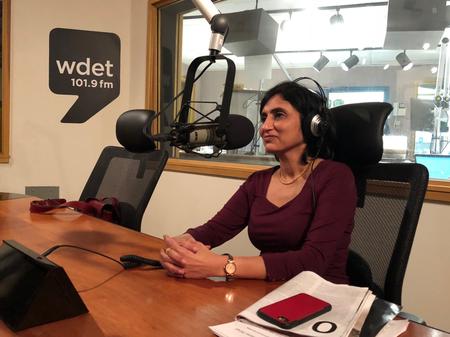The Impact of President Trump’s Speeches on Violence and Hate
Detroit Today Host Stephen Henderson digs into the deeper implications of what Trump says and doesn’t say during his speeches, and how that impacts his base.

An alleged manifesto left behind by the gunman in the domestic terrorist attack in El Paso contains language many believe is very similar to rhetoric used by President Donald Trump. To some, President Trump should bear some responsibility for using dehumanizing language when describing immigrants that may have, in part, motivated the El Paso attacks and other mass murders that have occurred recently.

Shikha Dalmia from Reason Foundation tells Stephen Henderson on Detroit Today that the language used by the President normalizing the dehumanization of immigrants has not been heard in American politics since the days of slavery. That language in addition to “very selective enforcement” of violent acts committed by private citizens leaves President Trump open to criticism and blame.
“The kind of talk Donald Trump uses is vastly different from Obama,” says Dalmia. She tells Henderson that while she was no fan of Obama, she can acknowledge the difference in how he described immigrants from President Trump. The way Trump describes the onslaught of immigrants as an “invasion” can implicitly feel honest says Dalmia.
Washington Post National Correspondent Philip Bump also joins the conversation to weigh in with the perspective he laid out in a recent piece.
